Laura Jane Grace’s schedule from last December through the first month of the new year was, to put it gently, busy. She performed with Dinosaur Jr. at Brooklyn’s Music Hall of Williamsburg, then spent some time in the studio working on a top-secret cover project. She got married in Las Vegas, and flew to Mississippi for a week of recording with Drive-By Truckers’ Matt Patton. She hopped up to Memphis for Lucero Family Christmas, then played solo dates in St. Louis, Denver, Omaha, Minneapolis, and Lawrence, Kansas. In early January, she performed at a star-studded fundraiser in Wisconsin before jetting to Greece for a string of solo shows. Grace doesn’t take the intensity for granted. Over her 25 years as a professional musician, she’s learned the value of momentum.
“When things are moving, just keep moving,” she says. “I’m not trying to jinx anything, but I’m really looking forward to this year, and the future.
”Grace, who is best known for fronting iconic punk band Against Me!, has spent a good piece of the past four years trying to get her momentum back—the sort of energy that feels like a trademark for the singer and guitarist. Since she was a teen, her life has revolved around the seasons of music work: writing, recording, promoting, touring, repeat. Against Me! was three shows into a tour leg when the Covid pandemic slammed the brakes on that 20-year routine, and emotionally, Grace went flying through the windshield.
“My world was just completely turned upside down and shaken around,” she says. Since 2012, she had built her off-the-road life in an apartment in Chicago, but a shift in her personal life meant she had to split her time between there and St. Louis. There were some benefits: Grace couldn’t crank her amps in her apartment, and finding spare private space to play and record would be cheaper in St. Louis than Chicago. She found a studio there called Native Sound, which used to belong to Son Volt’s Jay Farrar, nested above a bar in downtown St. Louis. “I was like, ‘Shit, if Jay can make that work, so can I,’” says Grace.
Laura Jane Grace - "Birds Talk Too"
“When things are moving, just keep moving. I’m not trying to jinx anything, but I’m really looking forward to this year, and the future.”
That studio is where Grace recorded Hole in My Head, her third solo record, which was released on February 16. It’s a lean, uncomplicated folk-punk joyride. Though the opening, title track jolts the LP to life with a full-band punk-rock crush of melody, harmony, and abandon, the rest of the album is primarily about Grace’s vocal cords and her acoustic guitar. “I’m Not a Cop,” a fuzzy, crust-punk, doo-wop ditty, mashes together Modern Lovers’ off-kilter tone with a ’50s rock ’n’ roll shuffle. Then, “Dysphoria Hoodie” pares it back to just Grace and her acoustic for an ode to a baggy Adidas sweater—her greatest protector on days when she doesn’t want the world sussing her gender. Drums and a gritty electric check in again on the short, sweet firecracker “Birds Talk Too,” but otherwise, it’s all acoustic, propped up by a handful of bass lines and some good old handclaps, a tambourine, and shakers for percussion. Why did Grace pull back from years of full-band chaos?
“I mean this in the best way possible, but this record’s coming from a place of fear,” Grace explains. “Fear challenges you and makes you grow, and takes you out of your comfort zone. I think artists are most prolific and do their best work when they’re coming from a place of survival.”
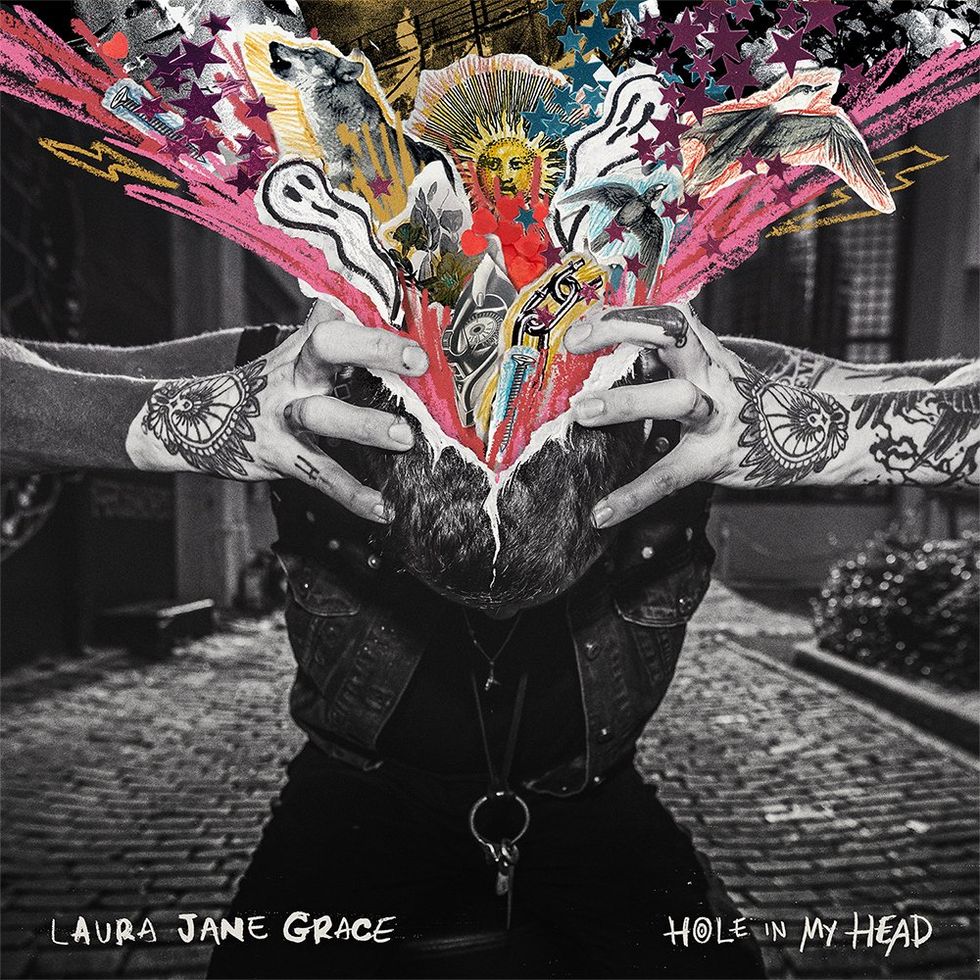
Hole in My Head’s cover art, captured by Dave Decker and illustrated by Annie Walter, shows Grace behind the State Theatre in St. Petersburg, Florida. The recognizable cobblestones remind Grace of being a teen, doing “deviant shit” in that very alley with friends.
Entering her 40s in 2020, Grace was back in survival mode, a familiar place for her as a teen in Gainesville, Florida. Longtime fans will know this story well: After moving around the world with her family, Grace landed in the inland college town, a military brat turned anarchist punk. Between benders and doing “deviant shit” with friends, she started performing solo as Against Me!, with just an acoustic and her powerful, pitch-perfect roar. She played alone in dives up and down the panhandle before Against Me! solidified into a band. (Even then, their first recordings were as DIY as you can get: Original drummer Kevin McMahon played a bucket drum on the first two Against Me! EPs, and you’d be forgiven for thinking it makes an appearance on their first full-length, the now-iconic Against Me! Is Reinventing Axl Rose.)
“I think artists are most prolific and do their best work when they’re coming from a place of survival.”
Against Me! went on to sign with a major label and release two hi-fi punk-rock records, both produced by Butch Vig: 2007’s New Wave spawned their biggest hit with “Thrash Unreal,” and 2010’s White Crosses dipped further into arena-rock waters, an anarcho-Springsteen hybrid. This era famously cost Against Me! a good chunk of their earliest supporters, who felt burned by the band’s “selling out.” Their van’s tires were slashed on tour, and Grace was cussed out on plenty of occasions. But the band cut things off with corporate and went independent again for 2014’s scrappy Transgendered Dysphoria Blues, the first Against Me! record that explicitly detailed Grace’s experience as a trans woman.
That was 10 years ago. It’s as if Grace hit some uncanny peak with the major-label signing, and has since been slowly retracing her steps back to her crust-punk origins: After two solo records accompanied by her backing band, the Devouring Mothers, she’s back to just a voice and a guitar.
Laura Jane Grace's Gear
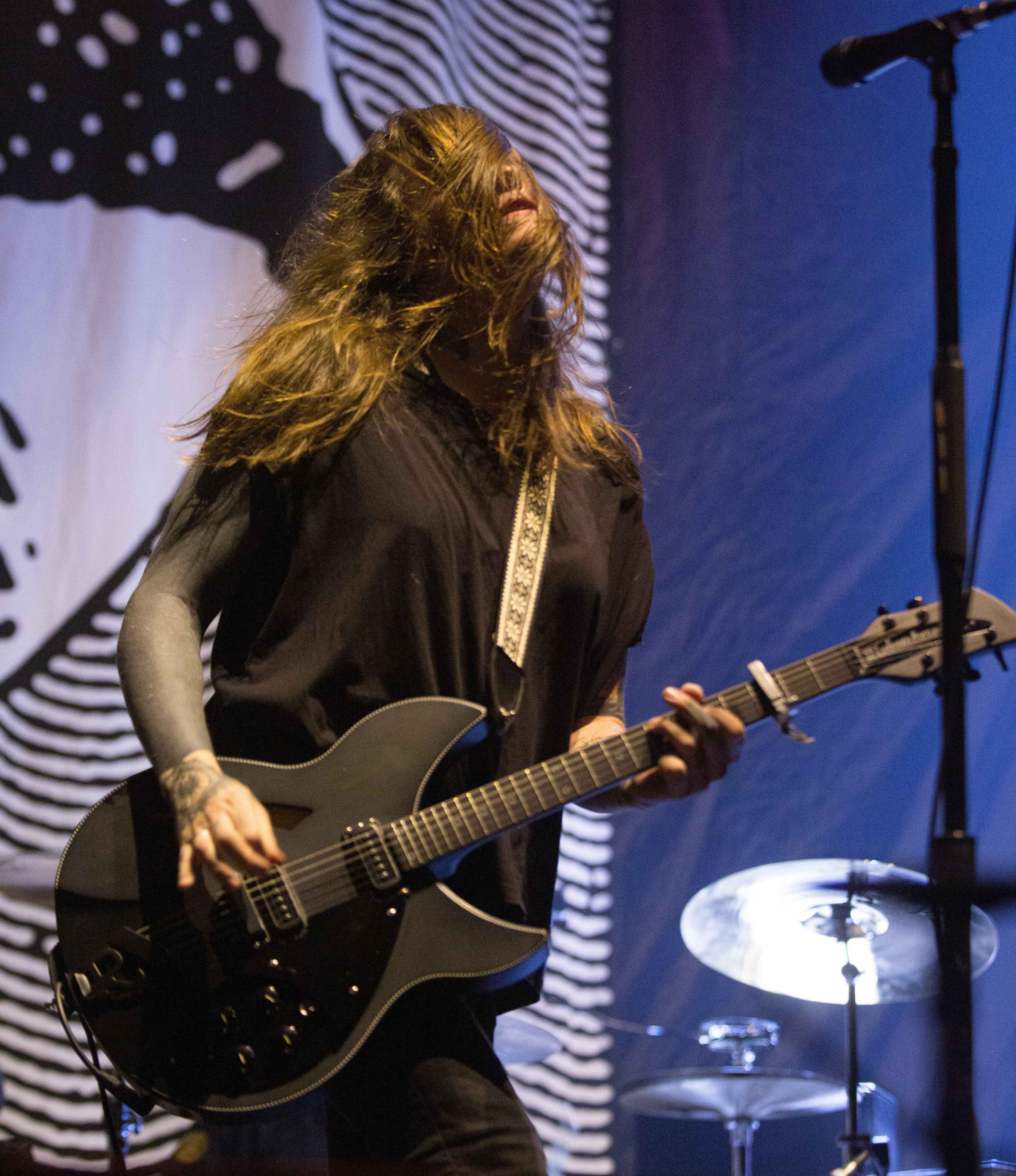
With Against Me!, Grace ascended from crust-punk streetnik to major-label star. But after two corporate records, the band went rogue again.
Photo by Tim Bugbee
Strings & Picks
- Ernie Ball Everlast Coated Acoustic (.010–.050)
- Ernie Ball Regular Slinky (.010–.046)
- Dunlop Tortex Standard .66 mm picks
Other similarities appeared over the last few years, as if some cosmic clock had been reset and she were back at square one. As a kid, she had spent summers and winters going up to Missouri, where her father lived. She always hated it, and this current era, where that state came back into her life, offered a chance to reconcile with the past. She decided to start working on music again on her own to minimize the risk of greater financial losses—if one week of solo shows got canceled, it would just mean she personally was put out, rather than four band members and five crew. But after decades of touring with a group, going back to just six strings and a voice—something she’d not done on a regular basis since her teens—took some finessing. “You feel afraid in the same ways, but again, a healthy fear,” she says.
“If the whole house burns down, if I can make it out with my acoustic guitar, worst-case scenario I’ll be busking on a street corner and hoping people throw change into the guitar case—but I can feed myself.”
“It’s an exercise in self-reliance,” she continues, “and it’s a comfort to always have that there. That’s what I think is beautiful about the acoustic guitar, is that you’re stripping it down to the bare minimum, and I know, ‘Okay, as long as I have that, I’m okay. If the whole fuckin’ house burns down, if I can make it out with my acoustic guitar, worst-case scenario I’ll be busking on a street corner and hoping people throw change in to the guitar case—but I can feed myself. That’s a comforting feeling. Those barebones tools as an artist; that’s self-reliance and that gives you self-confidence and self-esteem, and then you build from there.
”Plus, just like the modest recordings of early classic rock ’n’ roll songs, Hole in My Head never feels wanting in its simplicity. Grace notes that we don’t listen to Buddy Holly or Dion’s “The Wanderer” and wish there were more modern flourishes or a more discernible kick drum. The aesthetic works, and since she was going it mostly alone, it’s what Grace chased.
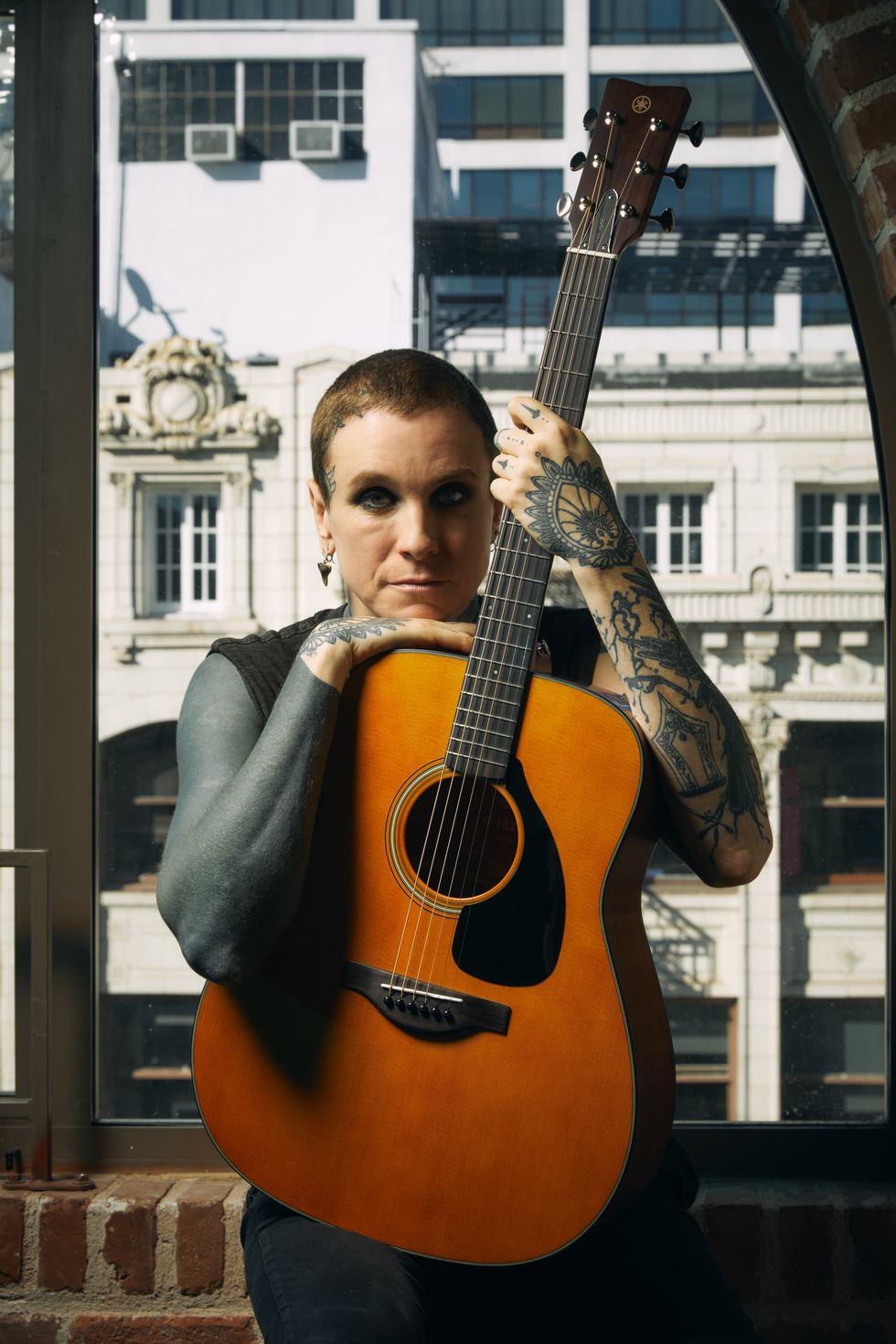
When it comes to acoustics, Grace prizes one criterion above all: Does it break strings?
Photo by Travis Shinn
Her coconspirator on the record wound up being Matt Patton, mentioned earlier, who provided bass and backing vocals for six songs. Grace had never met Patton before when he drove from Mississippi up to St. Louis in February 2023 for the sessions—X, then Twitter, brought them together in a moment of “total kismet,” says Grace. The two became fast friends, and Grace says the connection with Patton is her most cherished part of the album. “He took a total chance coming to St. Louis,” she says. “His contribution is immeasurable.” Patton returned the favor last December, hosting Grace for some sessions at his Water Valley, Mississippi studio.
“Those places that people refer to as ‘shithole’ cities, or the places where no one wants to be, I have this natural urge inside of me…. I’m like, ‘I dunno, maybe I want to go there.’”
Grace and Patton worked with engineer David Buzzbee at Native Sound, and Grace brought along four guitars to get the job done. Her all-black Yamaha LJ16 was—and still is—her acoustic of choice, a guitar with which she says she shares “a total soul connection. When it comes down to acoustic guitars, the thing that I’m most concerned about onstage is, ‘Does it stay in tune and does it break strings?’” she says. “That thing does not break strings, so I fucking love that guitar.”
Her 1963 Fender Jaguar and ’70s silver-panel Twin Reverb—both of which she bought off of original Heartbreakers drummer Stan Lynch—were in regular rotation, as was a handpainted Gretsch gifted to Grace from her longtime tattoo artist. Her signature blackout Rickenbacker 370 can be heard on the record, too. But no pedals at all were used, and the low-rent grit of “Hole in My Head” was coaxed not from Grace’s Twin, but from a Rickenbacker TR7, a dinky solid-state 1x10 amp. Grace remarks that she’s obsessed with making records with tiny amplifiers these days. “Maybe it’s cause the studio was upstairs, and I’m like, ‘Fuck, I don’t wanna carry a big amp upstairs,’” she chuckles.

Grace loves her new part-time homebase of St. Louis, Missouri, even though it’s not exactly a prime destination. That’s part of the appeal.
Photo by Tim Bugbee
Over a year on from her introduction to the city, Grace now feels a fairly legitimate affection for St. Louis. Unlike Chicago, which always overwhelmed her, St. Louis is manageable: You can get just about anywhere you need to be in 15 minutes, and rents haven’t spiked to unlivable levels the way they have in other cities. Grace fell in love with the city by bar-hopping, starting with the Whiskey Ring, right under Native Sound. Grace is sober, but that made bar-hopping all the more doable. She could slug nonalcoholic beers, then drive to check out another corner of town.
St. Louis is an underdog city, which endears it to Grace. “Those places that people refer to as ‘shithole’ cities, or the places where no one wants to be, I have this natural urge inside of me that if I hear someone talking about a place like that, I’m like, ‘I dunno, maybe I want to go there,’” she says. “Maybe it’s just a rebellion against the opposite of, that place that everyone else wants to go, I don’t want to go.”
YouTube It
Grace leads a rip-roaring acoustic set last summer in Southern California, captured here in stereo audio by a dedicated fan.


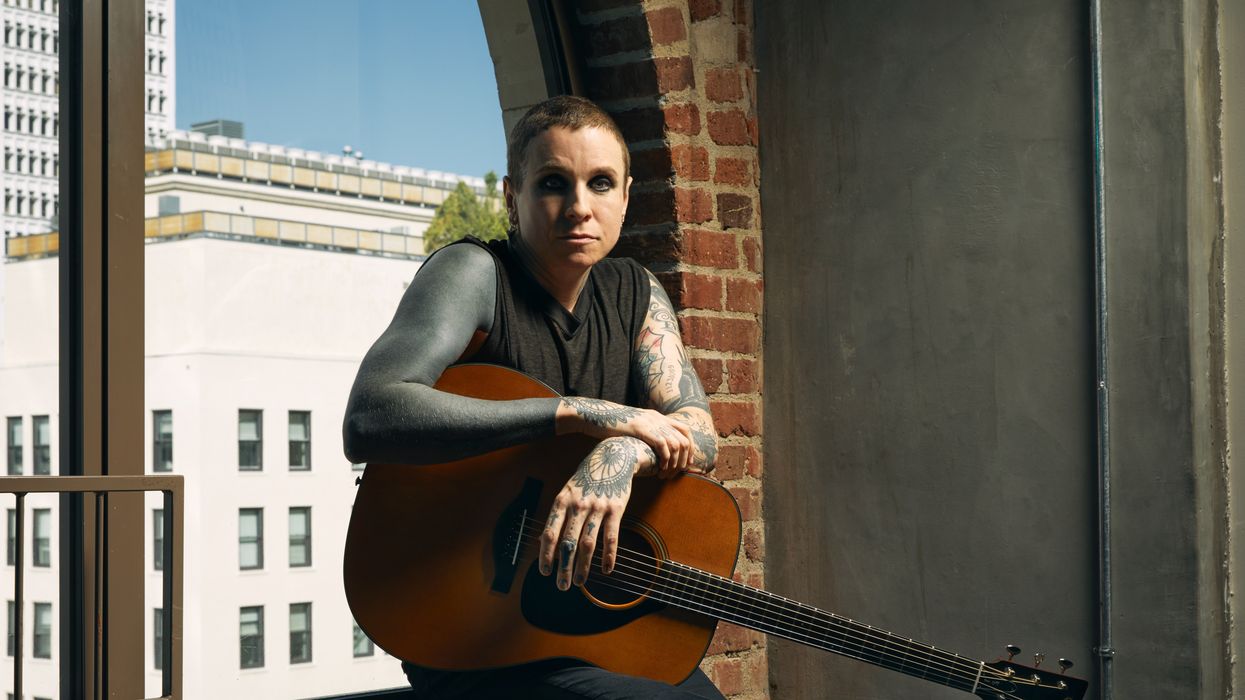









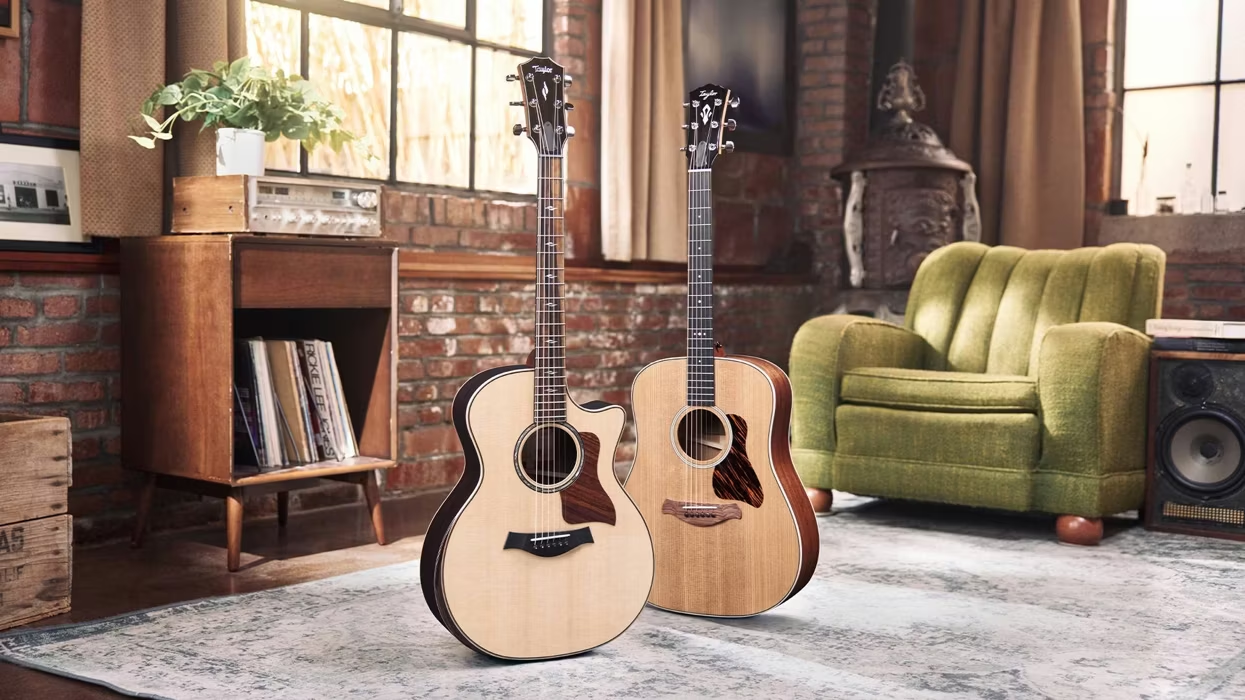
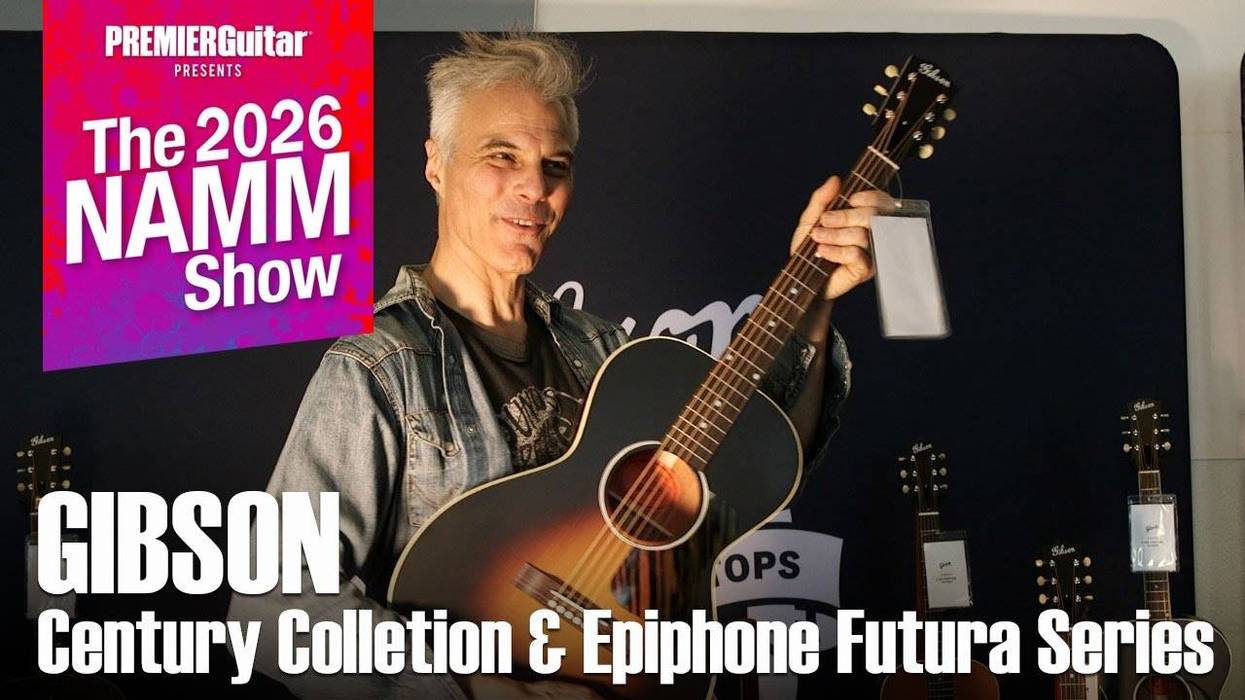
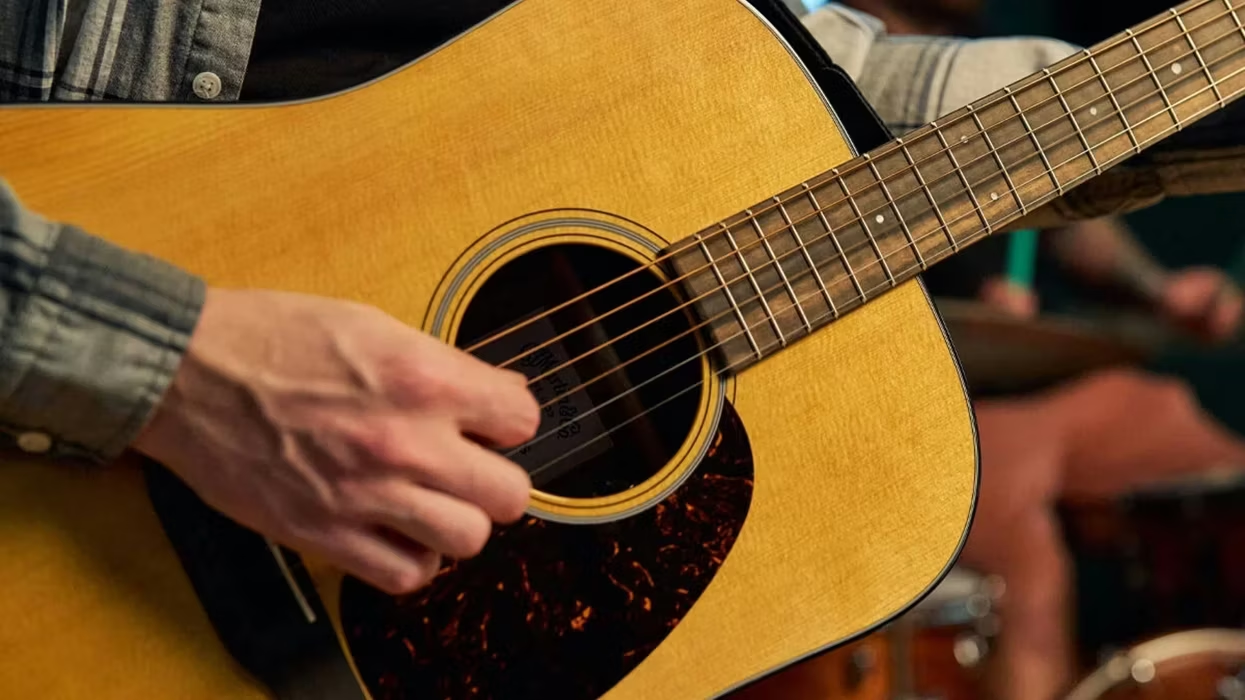
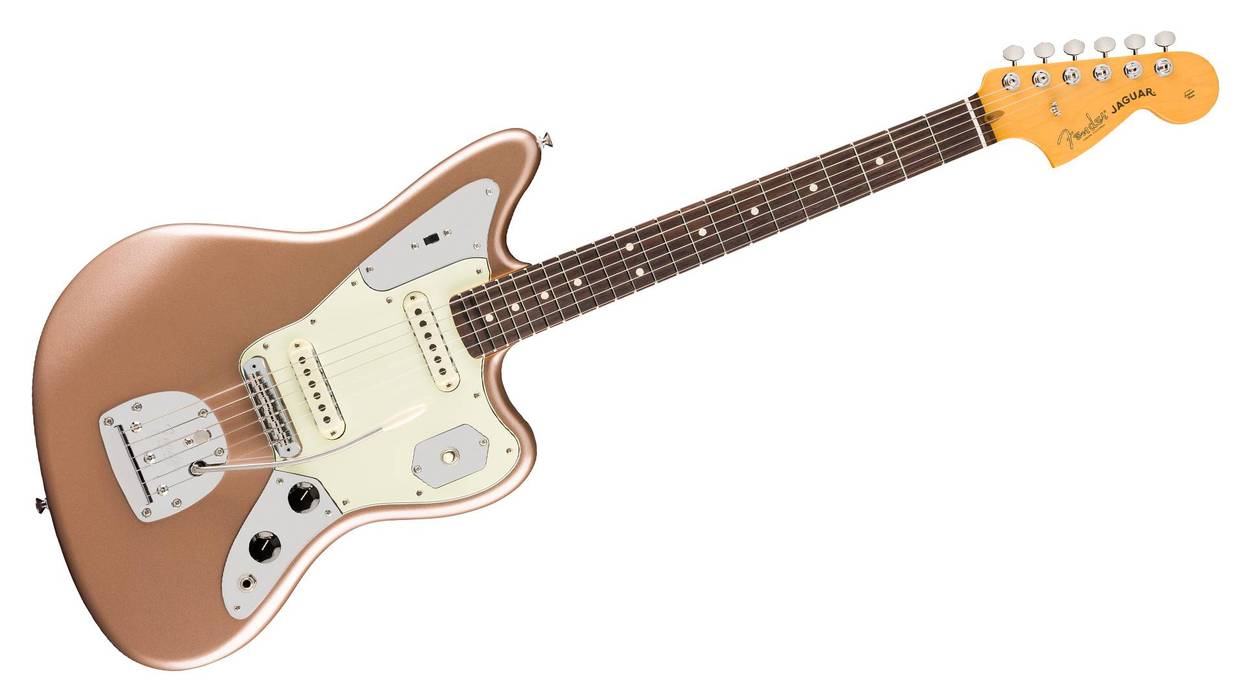
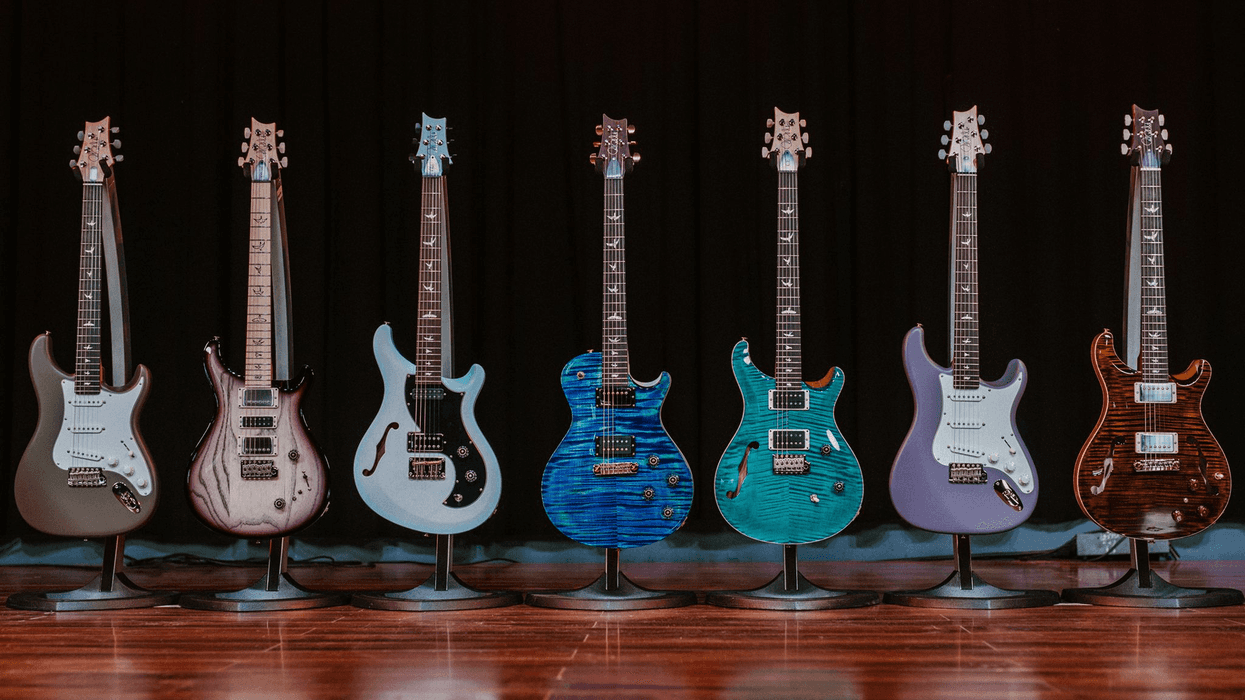



![Rig Rundown: Russian Circles’ Mike Sullivan [2025]](https://www.premierguitar.com/media-library/youtube.jpg?id=62303631&width=1245&height=700&quality=70&coordinates=0%2C0%2C0%2C0)






